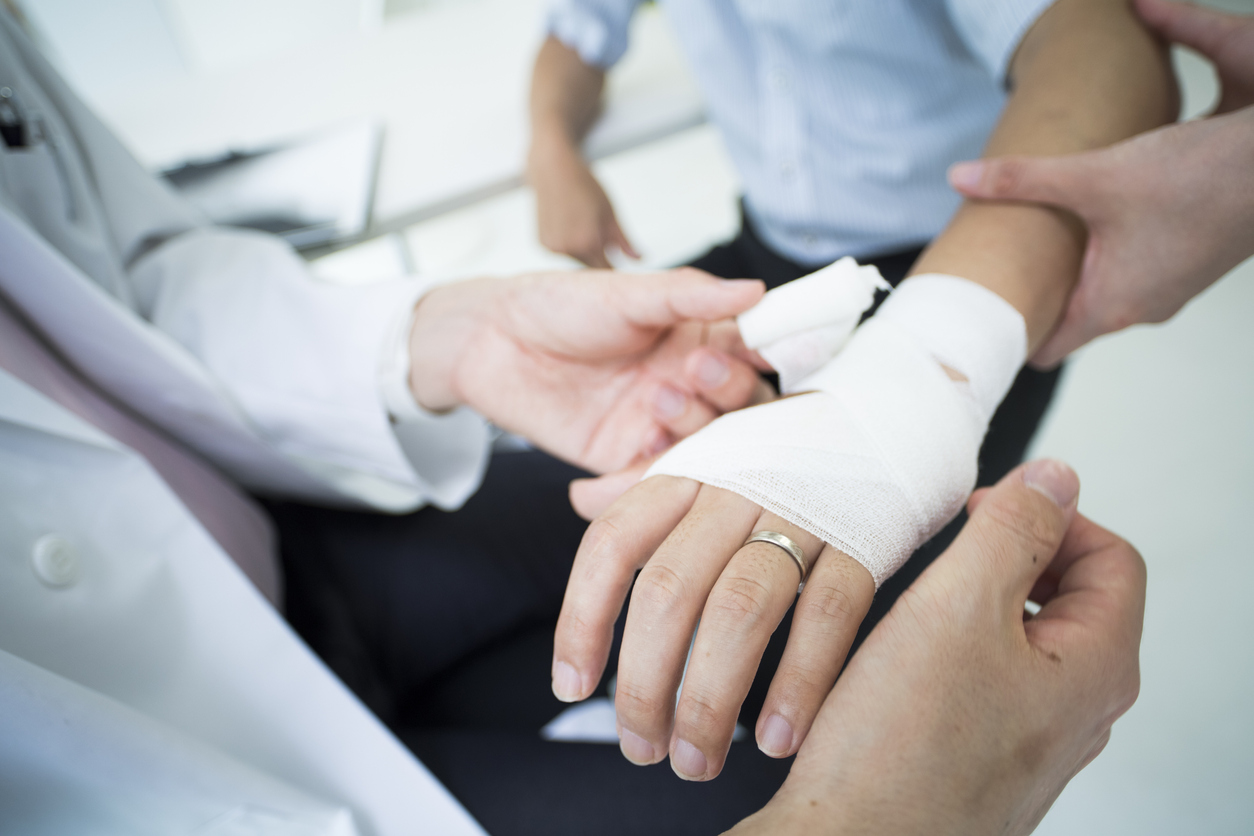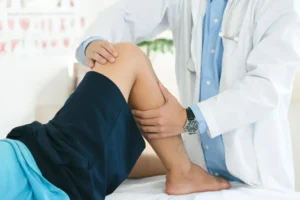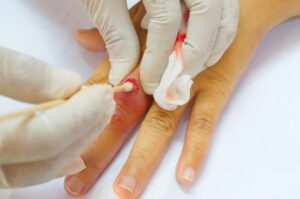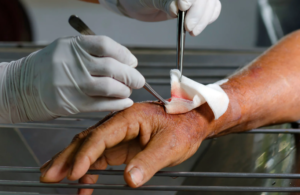Recognizing an Infected Wound
Wounds are a normal part of life, but they don’t always heal the way they should. It’s important to understand when a wound crosses the line from normal healing into infection. Redness, swelling, increased pain, warmth around the area, and pus or fluid discharge are often the first signs that something is wrong. A foul smell coming from the wound or a fever can also be strong indicators that the body is responding to an infection. These symptoms mean that the immune system is struggling and needs help from a professional. Ignoring these signs can allow the infection to spread deeper into the tissue, bloodstream, or even bones. Monitoring the wound closely during the healing process is the best way to identify changes early and avoid serious consequences.
When to See a Doctor for Infected Wounds
Delaying treatment when a wound is infected can lead to serious health problems. If swelling increases, red streaks start moving away from the wound, or pain worsens over time, it’s time to seek professional care. Also, wounds that don’t show signs of healing within a few days, or that keep reopening, should not be left untreated. People with underlying health conditions such as diabetes, cancer, or autoimmune disorders are more vulnerable to complications and should be especially cautious. A doctor for infected wounds can assess the situation quickly and recommend appropriate action, which may involve prescriptions, wound cleaning, or referrals. Waiting too long can turn a minor infection into a medical emergency requiring hospitalization. It’s always better to err on the side of caution and let a qualified medical professional determine the severity.
What a Doctor for Infected Wounds Will Typically Do
Visiting a doctor for infected wounds provides more than just peace of mind—it’s often necessary for proper healing. The first step typically involves a thorough examination to assess the type and severity of the infection. The doctor might take a sample of the wound discharge for laboratory testing to identify the bacteria involved. Based on findings, the treatment might include oral or topical antibiotics, wound cleaning with antiseptic solutions, or even minor surgical procedures to drain abscesses. Pain management strategies are also discussed, especially in severe cases. Additionally, the doctor may bandage the wound in a specific way to protect it and promote healing. Every step is tailored to the patient’s unique condition, ensuring effective recovery while preventing complications.
Types of Medical Professionals Who Treat Infected Wounds
Several types of healthcare providers can manage infected wounds, depending on the severity and underlying cause. General practitioners are usually the first point of contact and can handle mild to moderate infections effectively. For deeper or more complex cases, a wound care specialist may be involved. These professionals have advanced training in treating chronic wounds, ulcers, and infections that resist conventional healing. Infectious disease doctors may be consulted if the bacteria are resistant to common antibiotics or if the infection has spread significantly. In some cases, emergency room doctors or urgent care clinicians may be necessary for quick intervention. Knowing the roles of these specialists helps you make better decisions about where to go for the right care.
Risks of Ignoring or Self-Treating an Infected Wound
While it may seem convenient to treat a wound at home, this approach can be risky if infection has set in. Over-the-counter creams and antibiotics may not be enough to address aggressive bacteria, and misdiagnosing the issue can lead to worsening symptoms. Without proper medical care, infections can spread quickly into the bloodstream—a condition known as sepsis, which can be life-threatening. Scarring, permanent tissue damage, and bone infections are also possible outcomes. Another risk is delaying professional help while trying multiple ineffective remedies, which gives the infection time to progress. It’s essential to understand that treating wounds without medical oversight is not only ineffective in some cases but potentially dangerous. A doctor for infected wounds is trained to spot signs that the average person may overlook.
How Doctors Help Prevent Recurrence of Wound Infections
Once a wound has been treated, preventing another infection becomes the next priority. Doctors often provide detailed aftercare instructions tailored to the specific wound and patient condition. This includes how to clean the wound, change dressings, and monitor for signs of reinfection. For patients with underlying medical issues like diabetes, guidance may extend to managing blood sugar and circulation to support healing. Doctors may also recommend specific antibacterial creams or protective coverings. Educating patients about proper hygiene, wound exposure, and avoiding activities that could reopen the wound is another critical aspect. Follow-up appointments are usually scheduled to monitor progress and intervene early if any issues arise. With consistent medical support, the risk of recurrence is greatly reduced.
What to Expect During and After a Doctor Visit for an Infected Wound
A visit to a doctor for an infected wound usually begins with a full medical history and visual inspection. The doctor might ask questions about how the wound occurred, when symptoms started, and what treatments have already been tried. Tests such as wound cultures or blood work may be ordered if the infection appears serious. Depending on the findings, treatment could start immediately with antibiotics or a wound cleaning procedure. Pain relief options are discussed, especially if the wound is deep or located in a sensitive area. After the visit, patients are usually given instructions on wound care at home and may need to return for follow-up visits. The experience is generally straightforward and focused on quick healing and preventing complications.
Common Conditions That Lead to Chronic or Recurrent Wound Infections
Certain health conditions increase the risk of developing wound infections that don’t heal properly. Diabetes is one of the most common factors due to reduced blood flow and nerve damage that hinder healing. People with poor circulation, such as those with peripheral artery disease, are also at higher risk. Cancer patients undergoing chemotherapy, individuals with autoimmune diseases, and those on immunosuppressive medications face greater challenges in fighting off infection. Poor hygiene, malnutrition, and obesity can further contribute to recurring wound issues. Doctors are trained to take these underlying issues into account when planning treatment. They often coordinate care with specialists to address the broader health picture and prevent future infections.
How to Choose the Right Doctor for Infected Wounds
Selecting the right medical professional can make a big difference in how quickly and effectively a wound heals. Look for doctors who specialize in wound care or have experience treating infections. Board certifications, patient reviews, and referrals from other healthcare providers can guide your decision. It’s also helpful to choose someone who listens to your concerns and takes the time to explain treatment options. Ask about the availability of advanced wound care technologies, especially for chronic or complex infections. The best doctors also work collaboratively with other specialists if your condition requires a team-based approach. Choosing someone you trust ensures better communication and a smoother recovery process.
Frequently Asked Questions (FAQ)
Q1: How long should I wait before seeing a doctor for a wound that looks infected?
If you notice symptoms like redness, swelling, pus, or increasing pain, seek medical attention within 24 to 48 hours. Waiting longer could allow the infection to worsen.
Q2: What happens if I treat an infected wound with only over-the-counter solutions?
While some mild infections might improve, more serious infections require prescription medications and professional cleaning. Without proper care, the infection may spread.
Q3: Will I always need antibiotics for an infected wound?
Not always. Mild infections might be treated with cleaning and topical treatments. However, deeper or spreading infections typically need antibiotics.
Q4: Can a wound infection heal on its own?
It’s possible, but not guaranteed. Infections can worsen quickly, and relying on self-healing can be dangerous if symptoms escalate.
Q5: What type of doctor is best for treating deep or chronic wound infections?
Wound care specialists and infectious disease doctors are best equipped for complex or slow-healing wounds. For mild cases, a general practitioner may suffice.






